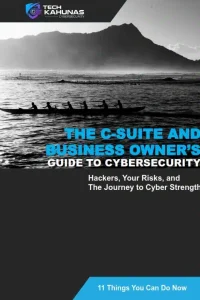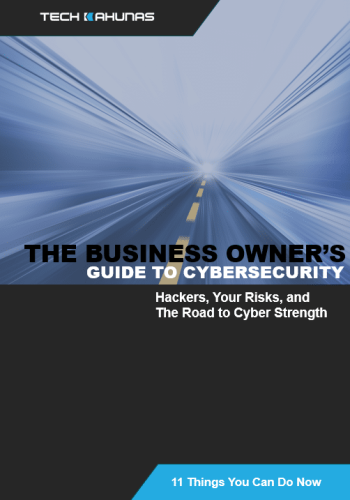In 2024, VC-funded biotech startups face significant cybersecurity risks. Ransomware attacks threaten intellectual property, causing operational and financial havoc. Insider threats stem from authorized access abuse by employees, risking data breaches. Supply chain vulnerabilities arise from reliance on third-party vendors, introducing security lapses. Data privacy breaches expose sensitive research and patient information, necessitating robust encryption and regulatory compliance. Intellectual property theft is a major concern, with proprietary data at stake. Startups must implement rigorous security protocols, training, and audits to protect their assets. Exploring strategies and solutions can offer a deeper understanding of mitigating these risks effectively.
Key Takeaways
- Ransomware attacks disrupt operations and threaten valuable intellectual property, necessitating robust prevention and incident response strategies.
- Insider threats exploit authorized access, risking data breaches and IP theft; real-time monitoring and employee training are crucial.
- Supply chain vulnerabilities from third-party integrations can introduce security gaps, requiring thorough vendor assessments and regular cybersecurity audits.
- Data privacy breaches target sensitive research and patient information; robust encryption and compliance with regulations like HIPAA and GDPR are essential.
- Intellectual property theft threatens biotech innovations, demanding stringent cybersecurity measures and legal protections like non-disclosure agreements.
Ransomware Attacks
While venture capital-funded biotech startups are at the forefront of innovation, they are also increasingly vulnerable to cybersecurity threats, with ransomware attacks posing a particularly significant risk. These startups, due to their invaluable intellectual property and sensitive data, present lucrative targets for cybercriminals. Ransomware attacks can lead to operational disruption, financial losses, and compromise of proprietary research data.
To mitigate these risks, a robust ransomware prevention strategy is essential. This involves deploying advanced threat detection tools, making certain that software systems are regularly patched and updated, and implementing strict access controls to safeguard critical data.
Furthermore, the development of a thorough incident response plan is vital. This plan should detail response procedures for ransomware incidents, including immediate containment measures, communication protocols, and data recovery strategies. Regularly conducting incident response drills can prepare the biotech startup to act swiftly and effectively when faced with an actual attack.
Additionally, maintaining secure and encrypted backups guarantees that data can be restored without capitulating to ransom demands. By prioritizing ransomware prevention and being equipped with a meticulous incident response strategy, VC-funded biotech startups can better defend against these pervasive cyber threats, thereby safeguarding their innovation and competitive edge.
Insider Threats
Even as external cyber threats loom large, insider threats represent a vital and often underestimated risk for VC-funded biotech startups. These threats can manifest through malicious or negligent actions by employees, contractors, or partners, potentially leading to data breaches or intellectual property theft. The dual nature of insider threats makes them particularly insidious; they exploit authorized access to sensitive information, bypassing traditional cybersecurity defenses.
To mitigate these risks, biotech startups must prioritize thorough employee training. This involves educating staff on cybersecurity best practices, recognizing phishing attempts, and understanding the implications of data mishandling. Regular training sessions should be supplemented with updates on evolving threat landscapes, ensuring that employees remain vigilant and informed.
Moreover, effective monitoring systems are essential in detecting and responding to insider threats. Implementing advanced analytics and machine learning tools can help identify anomalous behaviors indicative of potential insider threats. Such systems should be designed to provide real-time alerts and detailed activity logs, enabling rapid response to suspicious activities.
Supply Chain Vulnerabilities
Insider threats are just one facet of the broader cybersecurity challenges that VC-funded biotech startups face.
Equally concerning are supply chain vulnerabilities that arise from third party risk and software dependencies. In an increasingly interconnected industry, these startups rely heavily on external vendors and software solutions to accelerate innovation. However, each third-party integration introduces potential security gaps that can be exploited by cyber attackers.
To mitigate these risks, conducting thorough vendor assessments is essential. Startups must rigorously evaluate the cybersecurity posture of their partners, ensuring alignment with regulatory compliance standards.
Regular cybersecurity audits should be implemented to identify and address any vulnerabilities that may arise from these partnerships. Audits should focus on software dependencies, ensuring that all integrated systems are routinely updated to patch known security flaws.
Moreover, an effective risk management strategy should incorporate continuous monitoring of third-party activities, coupled with stringent contractual obligations to uphold cybersecurity best practices.
Data Privacy Breaches
Frequently, data privacy breaches present significant cybersecurity threats to VC-funded biotech startups, as these organizations handle vast amounts of sensitive information. This data includes proprietary research, patient information, and clinical trial results, all of which are lucrative targets for cybercriminals.
Biotech startups must implement robust data encryption strategies to safeguard this sensitive information, ensuring that data remains protected both in transit and at rest. Encryption serves as a vital line of defense, rendering data unreadable to unauthorized parties.
Furthermore, adherence to compliance regulations is paramount. Regulatory frameworks such as HIPAA in the United States or GDPR in the European Union mandate stringent data protection measures. Non-compliance can result not only in substantial fines but also in reputational damage that can be detrimental to a startup's trajectory.
Consequently, understanding and embedding these regulatory requirements into the company's cybersecurity framework is essential.
In addition, regular audits and penetration testing should be conducted to identify and mitigate potential vulnerabilities. By proactively addressing these risks, biotech startups can not only protect their sensitive data but also maintain the trust of their stakeholders, which is vital for sustained growth and successful funding rounds.
Intellectual Property Theft
Intellectual property (IP) theft poses a formidable challenge for VC-funded biotech startups, as the value of their innovations often lies in proprietary research and development. The theft of IP, including patents, trade secrets, and proprietary data, can severely undermine a startup's competitive edge and financial viability.
With cybercriminals increasingly targeting sensitive information, robust trade secret protection has become paramount. This entails implementing stringent cybersecurity measures to safeguard critical information against unauthorized access and industrial espionage.
A thorough approach to IP protection starts with a detailed risk assessment to identify vulnerabilities. Biotech startups must prioritize cybersecurity training for all employees, ensuring they are aware of potential threats and best practices for safeguarding sensitive data. This training should cover recognizing phishing attempts, securing personal devices, and adhering to data handling protocols.
Moreover, startups should employ encryption technologies, multi-factor authentication, and continuous monitoring to detect and respond to unauthorized access attempts swiftly.
Legal measures, such as non-disclosure agreements and IP audits, further bolster trade secret protection. As the biotech sector remains a lucrative target for cybercriminals, an integrated strategy combining technical, legal, and human elements is essential to mitigate the risk of IP theft effectively.
Frequently Asked Questions
How Can Biotech Startups Secure Remote Work Environments Effectively?
Biotech startups can enhance security in remote work environments by implementing robust remote access policies and employing secure collaboration tools, thereby mitigating risks associated with unauthorized access and data breaches while ensuring compliance with industry-specific cybersecurity standards.
What Are Best Practices for Employee Cybersecurity Training in Startups?
Effective employee cybersecurity training in startups should emphasize phishing awareness, robust password management, and thorough data protection. Incorporating incident response protocols, compliance training, and fostering a security culture are essential for mitigating risks and ensuring a resilient organizational framework.
How Do Evolving Regulations Impact Cybersecurity Strategies for Biotech Companies?
Evolving regulations necessitate robust cybersecurity strategies emphasizing data privacy, regulatory compliance, and risk management. Biotech firms must align incident response plans with ethical considerations while embracing digital transformation to mitigate threats and guarantee thorough security and compliance.
What Role Does AI Play in Enhancing Cybersecurity for Biotech Firms?
AI applications greatly enhance cybersecurity for biotech firms by utilizing predictive analytics for proactive threat detection, optimizing incident response, fortifying data protection, and refining risk assessment processes, thereby mitigating potential vulnerabilities and safeguarding sensitive intellectual property.
How Can Startups Evaluate the Effectiveness of Their Current Cybersecurity Measures?
Startups can evaluate the effectiveness of their current cybersecurity measures by conducting thorough cybersecurity audits and threat assessments. This guarantees identification of vulnerabilities and verification of defense mechanisms, thereby enhancing overall security posture and minimizing potential risks.



 Get your CPA firm aquainted with new FTC rules.
Get your CPA firm aquainted with new FTC rules. 




